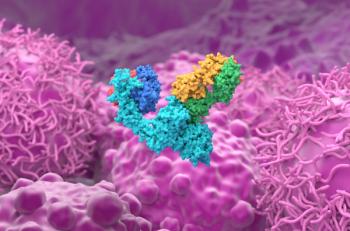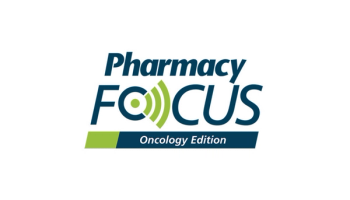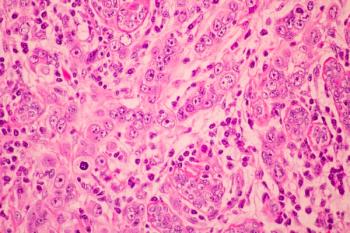
Novel therapies and personalized treatment plans are improving outcomes for patients with ER-positive breast cancer.

Novel therapies and personalized treatment plans are improving outcomes for patients with ER-positive breast cancer.

Trastuzumab deruxtecan and trastuzumab emtansine address key challenges such as recurrence and metastases in HER2+ early breast cancer treatment.

The combination of elacestrant and abemaciclib showed promising 8.7-month progression-free survival in ER+, HER2- advanced breast cancer, including in patients with ESR1 mutations.

The assessment of tumor-infiltrating lymphocytes can provide valuable insights to guide personalized treatment decisions for breast cancer patients.

At the 2024 San Antonio Breast Cancer Symposium, experts discussed the development, clinical impact, and challenges of antibody-drug conjugates (ADCs).

Both risk-reducing mastectomy and salpingo-oophorectomy were associated with significant improvements among young BRCA carriers with breast cancer.

Assessing pre-treatment TIL levels in young breast cancer patients could help predict response to neoadjuvant chemotherapy.

Experts highlight the importance of dosing and regimen optimization in breast cancer to improve treatment tolerability, reduce toxicities, and improve quality of life for patients.

Komal Jhaveri MD, FACP, shares that the combination of imlunestrant plus abemaciclib further improved progression-free survival compared to imlunestrant alone.

Virginia Kaklamani, MD, DSc, shares the role of ESR1 mutation testing and combination strategies to optimize endocrine therapy in patients with metastatic HR+/HER2- breast cancer.

Experts discuss advancements in hormone receptor–positive/HER2-negative breast cancer treatment while addressing safety, diversity, and fertility challenges.

pCR rates improve regardless of whether patients received full chemotherapy doses.

Trastuzumab deruxtecan and elacestrant represent important new treatment options.

Pharmacy Times provides a comprehensive recap of the latest advancements in hematology and breast cancer, shared at the 2023 American Society of Hematology and the San Antonio Breast Cancer Symposium conferences

No established standard of care currently exists after spread to the lymph nodes.

The combination resulted in numerically longer OS compared with an NSAI alone.

Significant study results could inform clinical practice strategies.

Douglas Warner, MD, chief medical officer at eFFECTOR, provides a comprehensive overview of zotatifin and its current status in a Phase 1/2 dose escalation and expansion study, with a focus on ER+/HER2- breast cancer.

Heather McArthur, MD, clinical director of breast oncology at UT Southwestern Medical Center, discusses the toxicities associated with antibody-drug conjugates (ADCs) used in breast cancer treatment at the 2023 San Antonio Breast Cancer Symposium.

Troy Bremer, PhD, chief scientific officer at PreludeDx, discusses biosignature model and it's potential in predicting radiation therapy response for those with early-stage invasive breast cancer.

Only 20% of the patient population were reported as being “very good” sleepers when it comes to sleep disturbances.

Study results indicate insignificant differences between PFS and OS in patients with HR[+]/HER2[-] breast cancer who received either palbociclib-letrozole or palbociclib-fulvestrant treatment.

In an interview at the 2023 San Antonio Breast Cancer Symposium, Ana Ferrigno Guajardo, MD, discussed research into the safety and efficacy of taxane-based chemotherapy use in pregnant patients with breast cancer.

As the use of sequencing, proteomics, and immunopeptidomics increases, more targets will also be discovered, as well as more biomarkers that predict responses to treatments.

Mara Hofherr, PharmD, a clinical oncology pharmacist at Washington University, highlights key findings of the KEYNOTE-522 trial in comparison of outcomes between Black and White patients with triple-negative breast cancer.

Gabriel Hortobagyi, MD, FACP, professor and chair emeritus of the Department of Breast Medical Oncology at the University of Texas MD Anderson Cancer Center discusses the changes in breast cancer management over the past decade.

Amelie G. Ramirez, DrPH, MPH, director of the Institute for Health Promotion Research at UT Health Science Center San Antonio, discussed the need for standardized questionnaires for clinicians to discuss social determinants of health with their oncology patients.

The discussion delves into the results and implications of the clinical trials, shedding light on the efficacy and safety profile of this combination therapy.

Improvements in PFS were also seen among patients with brain metastases.

pCR rates were improved with the addition of pembrolizumab regardless of whether patients received the full chemotherapy doses.